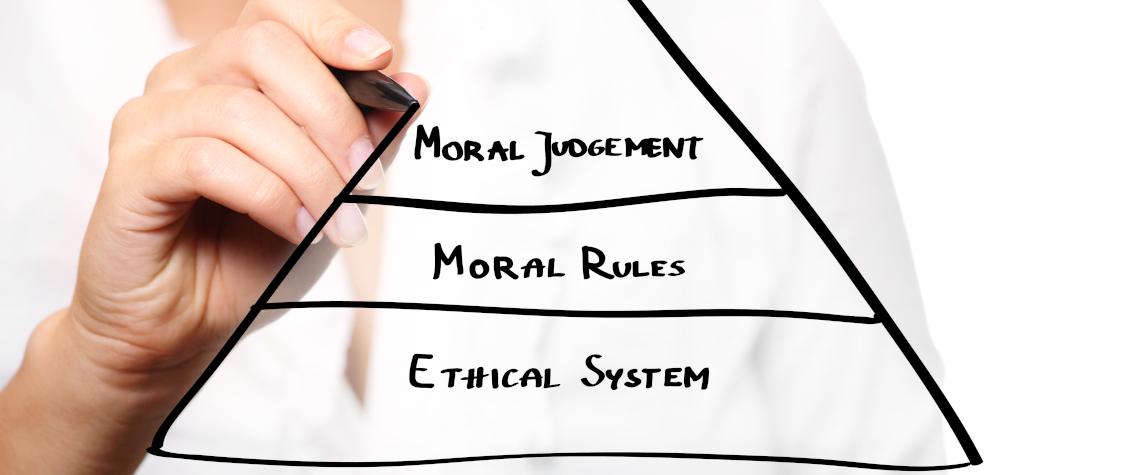Relating the Mission of God to Ethical Decision-Making
In professional and personal life, ethical decision-making is an essential practice that requires careful consideration, discernment, and a commitment to moral principles. As individuals who seek to live out their faith, integrating biblical views of ethics provides a framework for making decisions that align with God’s will and mission. The Bible offers timeless wisdom and guidance that can be applied to various ethical dilemmas, conflicts, and decisions encountered in the workplace, family life, and broader community interactions. Ethical principles derived from Scripture encourage Christians to act justly, love mercy, and walk humbly with God (Micah 6:8), emphasizing the importance of aligning one’s actions with biblical truth. This essay explores five components of relating a biblical view of the mission of God to making ethical decisions, resolving conflicts, and reasoning ethically. Each approach provides practical ways of integrating biblical principles with everyday decision-making, offering insight into how we can better reflect God’s mission in all areas of our lives.
1. Discernment and Wisdom
Ethical decision-making often requires careful thought and discernment. Using wisdom as a biblical principle helps professionals make informed choices that honor God’s will. This approach involves a thoughtful reflection on biblical truths, weighing options, and considering the long-term impact of decisions.
Biblical Illustration
King Solomon, as a ruler of Israel, held the significant responsibility of governing a diverse people and maintaining justice. His occupation as king required making difficult decisions that would have wide-reaching effects on the well-being of his people. In this particular story, Solomon is faced with the challenge of determining the rightful mother of a child between two women who both claim to be the mother (1 Kings 3:16-28). Solomon’s position demanded not only administrative ability but deep wisdom to ensure justice was served.
Solomon’s ability to discern the truth was essential in making a decision that would reflect God’s justice. Rather than making a rash judgment or relying solely on superficial claims, Solomon demonstrated godly wisdom by suggesting a solution that would reveal the true identity of the mother. This approach did not just resolve the conflict, but it also showcased God’s wisdom and justice to the people of Israel. Solomon’s occupation as king placed him in a unique position to uphold biblical principles of justice and mercy, reflecting God’s character to his nation.
Applications for Everyday Life
- Workplace Decision-Making
As a leader in a business or organization, you may be faced with disputes or decisions that affect the lives of many people. Like Solomon, seek God’s wisdom through prayer and study, and weigh all options carefully to ensure fairness and righteousness. - Personal Relationships
In family matters, when conflicts arise between loved ones, reflect on Solomon’s ability to see beyond the surface. Ask God for discernment in helping others come to the truth in a way that brings about healing and restoration.
2. Compassionate Justice
Compassionate justice involves making decisions that uphold biblical standards of fairness and righteousness while showing empathy and mercy. This approach recognizes that while justice is necessary, compassion is also a vital component of ethical decision-making. In practice, compassionate justice does not merely seek to punish wrongdoers but aims to restore relationships and ensure that all parties are treated with dignity and respect. It reflects the heart of God, who is both just and merciful (Psalm 85:10). This approach calls for practitioners to consider the context and struggles of those involved in an ethical conflict, weighing their decisions carefully to ensure fairness without sacrificing mercy. By integrating compassion into justice, individuals can work toward solutions that both uphold moral principles and offer opportunities for healing and redemption.
Biblical Illustration
Jesus, throughout His ministry, interacted with people in various occupations—fishermen, tax collectors, Pharisees, and Roman soldiers—yet He consistently embodied the perfect balance of justice and mercy. In the well-known story of the Woman Caught in Adultery (John 8:1-11), Jesus’ role as a teacher and leader placed Him at the center of a cultural and legal conflict. The woman caught in adultery was accused by the Pharisees, who sought to test Jesus’ commitment to the law by asking if she should be stoned according to Mosaic law. Jesus’ role as the Messiah and teacher required Him to uphold God’s law while also demonstrating God’s mercy and forgiveness.
Jesus’ decision to first challenge the accusers by stating, “Let him who is without sin cast the first stone,” revealed His understanding that true justice involves more than simply adhering to the letter of the law. His response did not negate justice but expanded it, showing that mercy and compassion must always accompany judgment. By refusing to condemn the woman and offering her forgiveness, Jesus not only fulfilled the mission of God but also modeled how individuals in positions of influence—whether teachers, leaders, or judges—should embody both compassion and justice in their decisions.
Applications for Everyday Life
- Disciplinary Actions in the Workplace:
As a supervisor or manager, when confronted with an ethical violation by an employee, like Jesus, you are called to uphold organizational rules but also offer mercy and guidance. This may involve helping the employee understand their mistake and offering them a chance for redemption. - Conflict Resolution in the Family:
If a family member falls into sin or makes a mistake, follow Jesus’ example by responding with compassion rather than condemnation. This doesn’t mean ignoring the wrongdoing but finding a way to restore the relationship through understanding and forgiveness.
3. Integrity and Accountability
Integrity is the foundation of ethical decision-making. This approach emphasizes the importance of honesty, consistency, and moral uprightness in all areas of life. Integrity involves aligning one’s actions with biblical principles even when it is inconvenient or when no one is watching. It requires individuals to make decisions based on what is right in God’s eyes rather than what is easy or beneficial in the short term. Accountability is a key component of integrity, as it requires individuals to be responsible for their actions and decisions. Biblical integrity also means living transparently, avoiding deceit, and holding oneself to a high standard of conduct. As Christians, our actions should reflect Christ’s integrity, which means upholding truth and moral uprightness even when faced with personal sacrifice (1 Peter 2:21-22).
Biblical Illustration
Daniel, serving as an administrator in the Babylonian empire (Daniel 6:1-23), faced a series of ethical challenges that tested his integrity. His occupation as a high-ranking official in a foreign, pagan government placed him in direct conflict with the cultural and religious norms of the Babylonians. Despite this, Daniel remained steadfast in his commitment to honor God through his actions. His refusal to worship the king or bow down to idols was not only a religious decision but an ethical one that aligned with the mission of God to remain faithful to His commands.
When Daniel was faced with the king’s decree that prohibited prayer to any god other than the king, his role as an administrator in Babylon forced him into a position where his refusal could lead to death. Despite the consequences, Daniel’s decision to continue praying to God three times a day demonstrated his unwavering commitment to living with integrity. His public display of accountability, even in a hostile environment, not only demonstrated personal integrity but also reflected God’s sovereignty over all kingdoms and nations. Daniel’s occupation made his ethical decision a matter of great public significance, showing that even in a secular job, one’s actions can serve as a testimony to God’s truth.
Applications for Everyday Life
- Business Practices
In the business world, you may face pressures to compromise on integrity for personal or company gain. Like Daniel, choose to uphold biblical principles in all your dealings, even if it means facing adversity. - Personal Choices
In situations where personal temptation arises—whether in finances, relationships, or ethical issues—follow Daniel’s example of steadfast commitment to integrity, knowing that God honors those who choose to act righteously, even in the face of hardship.
4. Servant Leadership
Servant leadership is a Christ-centered approach to leadership that places the needs of others first. Instead of using power or authority to serve oneself, servant leaders focus on the well-being and growth of others, empowering them to succeed. This leadership model is rooted in Jesus’ example, where He taught that true greatness comes from serving others (Matthew 20:26-28). Servant leadership involves making ethical decisions that prioritize the welfare of others, ensuring that their needs are met and that they are treated with respect and dignity. Leaders who practice servant leadership are committed to the well-being of their teams and communities, seeking to cultivate an environment of care, support, and mutual respect.
Biblical Illustration
Moses is a powerful example of servant leadership, marked by humility, obedience to God, and a commitment to his people. Initially reluctant to lead, his role as a shepherd in Midian did not seem like typical preparation for leading a nation. However, when God called him from the burning bush to deliver Israel from Egyptian slavery, Moses embraced the role with a sense of divine responsibility and servant-hearted leadership. Moses’ ethical integrity was evident throughout his leadership. He did not seek power or fame; instead, he pointed to God as the true leader of Israel. In Exodus 3:7-12, when God called him to confront Pharaoh, Moses expressed doubt, but God reassured him, promising His presence. This moment highlighted Moses’ humility—he sought to serve God’s mission, regardless of personal cost.
Moses’ leadership played a key role in God’s mission to redeem Israel and establish them as His people. Through Moses, God fulfilled His promise to deliver Israel and lead them to the Promised Land, demonstrating His faithfulness. Moses’ servant leadership ultimately pointed to Jesus Christ, the ultimate servant leader, who would sacrifice His life for the salvation of all people.
Applications:
- Workplace Leadership
As a manager or leader, follow Moses’ example by humbling yourself and seeking God’s guidance in your decisions. Prioritize the needs of your team, share responsibilities, and delegate tasks when necessary to ensure that the well-being of your employees is cared for and that the team thrives together. - Healthcare Leadership
In healthcare, servant leadership is demonstrated when professionals prioritize patient well-being over personal gain. Doctors and nurses can follow Moses’ example by caring for patients with compassion and making decisions that benefit them. Like Moses, healthcare leaders can delegate tasks to ensure effective teamwork and provide comprehensive care.
5. Reconciliation and Peacemaking
Ethical decision-making often involves addressing conflicts and seeking to restore broken relationships. The approach of reconciliation and peacemaking emphasizes the importance of forgiveness, understanding, and humility in resolving ethical conflicts. This approach reflects God’s mission of reconciliation, as described in 2 Corinthians 5:18, where Christians are called to be ministers of reconciliation. Peacemaking goes beyond resolving the immediate conflict; it involves restoring relationships, healing wounds, and building bridges of understanding. It requires individuals to forgive others as Christ has forgiven them (Ephesians 4:32) and to seek unity and peace in every situation. Peacemaking, while challenging, is a central aspect of living out God’s mission in a fractured world.
Biblical Illustration
The story of the prodigal son is a profound illustration of reconciliation and peacemaking (Luke 15:11-32). The father in the parable, a figure of God, patiently awaited his son’s return and was ready to restore him to full relationship, despite the son’s earlier rebellion and wastefulness. The father’s role as a patriarch in the family put him in a position to either reject or reconcile with his son. His decision to embrace the son, despite the latter’s mistakes, reveals the heart of God’s mission to restore humanity to Himself, showing that reconciliation is at the core of God’s work.
The father’s actions also demonstrate that those in positions of authority or responsibility—whether as parents, community leaders, or managers—have the opportunity to foster peace and reconciliation. The father’s willingness to forgive and restore his son highlights how important it is to seek peace and healing in relationships, rather than allowing brokenness to remain. Through the occupation of a father and head of the household, the parable reveals the ethical responsibility to restore relationships and reflect God’s grace and mercy in every action.
Applications for Everyday Life
- Conflict Resolution at Work
In the workplace, conflicts are inevitable. As a manager or colleague, be proactive in seeking reconciliation. Encourage open dialogue and mutual understanding, striving to restore relationships for the sake of peace. - Healing Broken Relationships
In personal relationships, particularly with family members or close friends, practice peacemaking. Be willing to forgive, just as the father did, and work toward healing wounds that may have resulted from misunderstandings or hurtful actions.
Conclusion
Incorporating biblical principles into ethical decision-making and conflict resolution not only guides individuals toward more righteous choices but also contributes to the fulfillment of God’s mission in the world. The approaches discussed—discernment and wisdom, compassionate justice, integrity and accountability, servant leadership, and reconciliation—serve as practical means to embody God’s character in our decisions and interactions with others. By looking to biblical illustrations such as the wisdom of Solomon, Jesus’ compassion and justice, Daniel’s integrity, Jesus’ servant leadership, and the reconciliation found in the parable of the prodigal son, we see examples of how ethical behavior rooted in biblical principles can transform not only personal character but also impact those around us. As we apply these principles to our daily lives, we participate in the larger mission of God, advancing His kingdom through just, merciful, and ethical actions that reflect His love and truth to a broken world. Ultimately, our decisions and actions, when guided by biblical wisdom, contribute to the restoration and reconciliation that are at the heart of God’s mission.

Dr. Curt Watke is a distinguished missiologist whose three-plus-decade-long career has significantly impacted Christian mission work in North America, particularly in under-reached and challenging regions. Holding a Ph.D. in Evangelism and Missions, Dr. Watke has focused on bridging cultural gaps and fostering sustainable Christian communities by developing innovative strategies that address contemporary challenges like globalization, urbanization, and religious pluralism. His emphasis on cultural sensitivity and contextualization in mission work is reflected in his collaborative writings, including notable works such as “Ministry Context Exploration: Understanding North American Cultures” and “Starting Reproducing Congregations.” Beyond his writing, Dr. Watke is a sought-after speaker and educator, lecturing at seminaries and conferences worldwide, and his teachings continue to inspire and equip new generations of missional leaders. His enduring legacy is marked by unwavering dedication to the mission of God and a profound influence on missional thought and practice. Dr. Watke serves as President and Professor of Evangelism & Missiology at Missional University.




